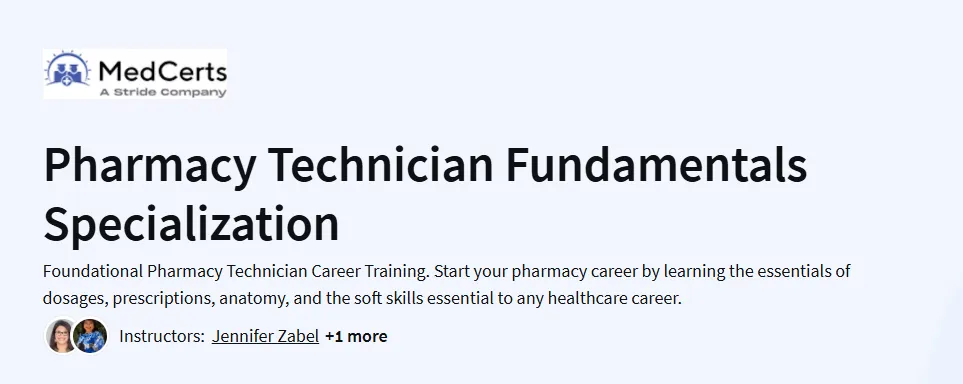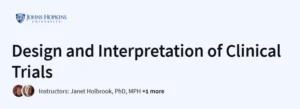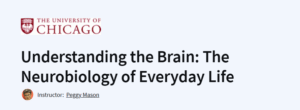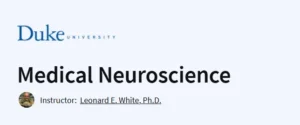What you will learn in Pharmacy Technician Fundamentals Specialization Course
Pharmaceutical Basics: Introduction to the role of a pharmacy technician and the overall responsibilities within a pharmacy.
Medication Dispensing: How to prepare, dispense, and manage medications in a pharmacy setting.
Pharmaceutical Calculations: Understanding dosage calculations, conversions, and determining medication quantities.
- Patient Safety Practices: Identifying potential medication errors, managing adverse drug reactions, and ensuring regulatory compliance.
- Pharmacy Regulations: Navigating legal and ethical standards in pharmacy practice.
- Pharmaceutical Knowledge: Familiarity with common drug classes, formulations, and their therapeutic uses.
Program Overview
Pharmacy Technician Essentials
⏱️4-6 weeks
This section introduces the key concepts of pharmacy practice, including the role of the pharmacy technician, the responsibilities within a pharmacy, and how the healthcare system operates.
Learn essential tasks such as drug preparation, dispensing medications, and supporting pharmacists.
Understand the ethical guidelines and legal aspects of the pharmacy profession.
Medication Knowledge & Drug Formulation
⏱️6-8 weeks
This section delves into the basic understanding of medications, their formulations, and how they interact with the human body.
Explore common drug classes and their therapeutic uses.
Learn how to identify, handle, and prepare medications, including proper storage techniques.
Pharmaceutical Calculations
⏱️ 8-12 weeks
Here, you will learn critical pharmaceutical calculations necessary for accurate medication dispensing.
Master dosage calculations, conversions, and determining medication quantities.
Understand the importance of precision in patient safety and medication management.
Patient Safety & Healthcare Regulations
⏱️ 10-12 weeks
This section focuses on patient safety practices, including identifying potential medication errors, handling adverse drug reactions, and ensuring regulatory compliance.
Learn how to navigate the legal and ethical standards in the pharmaceutical environment.
Gain knowledge of drug interactions, contraindications, and the significance of patient records.
Capstone Project & Practical Application
⏱️ 12-15 weeks
In this final project, learners will apply their knowledge in a real-world scenario, working through various pharmacy-related tasks and solving medication-related issues.
Collaborate in a simulated pharmacy setting to handle medication orders and patient interactions.
Present a final report with detailed solutions to pharmacy challenges.
Get certificate
Job Outlook
The demand for pharmacy technicians is expected to grow by 7% by 2030 (U.S. Bureau of Labor Statistics).
Entry-level pharmacy technicians earn an average salary of $35K – $40K annually, with experienced professionals making upwards of $55K.
Key skills include medication dispensing, patient interaction, pharmaceutical knowledge, and a strong understanding of healthcare regulations.
The certification enhances employment opportunities in hospitals, retail pharmacies, and clinics, while also opening pathways to career advancement in healthcare management and specialty pharmacy roles.
Specification: Pharmacy Technician Fundamentals Specialization
|





